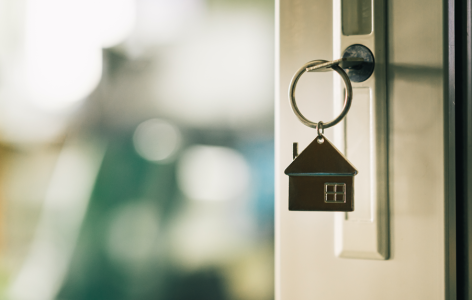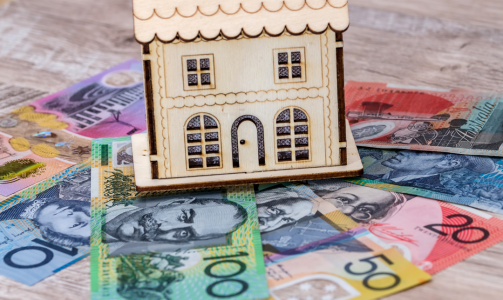Rent shock: Australian pensioners face sky-high increases—find out if you're next!
By
- Replies 25
As the cost of living continues to climb, Australian pensioners face a new challenge threatening their financial stability and comfort: skyrocketing rent prices.
Laura Stroud, a pensioner who has lived in her rental property for the last four decades, is one of the many tenants grappling with this harsh reality.
Recent rent hikes have pushed her weekly payments to an eye-watering $500, forcing Stroud and others like her to make tough choices about their day-to-day expenses.
The rental market has been a hot topic across Australia, with record increases and a scarcity of available properties exacerbating the situation over the past few years.
Domain's latest Rent Report suggested that while the era of steep rent rises may plateau in some regions, the damage has already been done to many tenants.
For Stroud, who resides in Melbourne's Chelsea, the $68 weekly increase threatens her way of life.
'I’ve been here since the house was built. I moved in in 1983,' she shared.
'I’ve raised my children here and helped raise my grandchildren.'
The Melbourne resident suffered from Fibromyalgia and relied on a disability pension.
Although she lives in public housing, her rent is pegged to the market rate, which is independently assessed based on the property's age, size, and type, which is in line with private rentals in the area.
The sudden jump in rent has left her 'appalled' and scrambling to adjust her already tight budget.
‘Normally, they put the rent up about $20 or sometimes $30 each time, and then all of a sudden it’s $68 a week,’ Stroud continued.
‘I’m just appalled, absolutely appalled that it can be allowed to jump that much on a weekly basis.’
Stroud lived with a caregiver who contributes to part of the rent, but she mentioned that the rent hike would still be difficult for her to manage.
‘I don’t want to leave my home, so I’ll have to find a way,’ she said.
‘It just means that other things won’t be possible, and I’ll try to lower other bills and cut off some things and just live differently, I guess.’
Stroud mentioned that she made a conscious effort to turn off lights and appliances on the wall.
However, she would need to reduce heating, groceries, and health insurance expenses to manage the rent increase.
‘It’d be the essentials. There’s nothing I can really do; I don’t go out and party or go to the movies or anything like that,’ she stated.
Public housing tenants can typically expect their rent to be capped at 25 per cent of their household income, with the option to apply for rental rebates.
‘This ensures public housing remains affordable and fair,’ a Homes Victoria spokesperson assured.
‘This process happens every year and provides tenants with an opportunity to update their declared income with Homes Victoria to ensure they only pay what they can afford. This means for some tenants, their rent will go down.’
Unfortunately, Stroud is not eligible for these rebates and must pay the total market rent.
Many Australians wonder whether rent prices are going down anywhere in the country.
While Domain's report indicated that rent prices are either stalling, falling, or growing slower, capital cities are still experiencing record highs.
House rents in Sydney and Perth have remained steady but at record levels, while Melbourne, Brisbane, Darwin, Adelaide, and Canberra have all seen increases to new records.
On the flip side, there are glimmers of hope for renters. The asking rent for houses has stagnated in Sydney and Perth and declined in Hobart.
Melbourne and Brisbane's rent increases have slowed to half the previous quarterly pace. Growth has halved across the combined capitals for units, with prices stalling or decreasing in several cities.
Several factors contribute to this slowdown, including a gradual increase in rental availability, easing rental demand, and a peak in overseas migration.
Additionally, government strategies to slow population growth and initiatives to encourage first-home ownership are expected to provide some relief for tenants.
House rents across the capital rose by 11.1 per cent annually to a new record of $650 per week, and unit rents rose by 8.6 per cent annually to $630 per week.
In related news, a tenant in South Australia won a tribunal case against their landlord, who then sent a spiteful email in response.
A tenant advocate shared the contentious email on social media, leading to widespread criticism of the landlord's unprofessional conduct. More details about the story can be found here.

Have you experienced a significant rent hike recently? How are you coping with the rising cost of living? Share your stories and tips in the comments below.
Laura Stroud, a pensioner who has lived in her rental property for the last four decades, is one of the many tenants grappling with this harsh reality.
Recent rent hikes have pushed her weekly payments to an eye-watering $500, forcing Stroud and others like her to make tough choices about their day-to-day expenses.
The rental market has been a hot topic across Australia, with record increases and a scarcity of available properties exacerbating the situation over the past few years.
Domain's latest Rent Report suggested that while the era of steep rent rises may plateau in some regions, the damage has already been done to many tenants.
For Stroud, who resides in Melbourne's Chelsea, the $68 weekly increase threatens her way of life.
'I’ve been here since the house was built. I moved in in 1983,' she shared.
'I’ve raised my children here and helped raise my grandchildren.'
The Melbourne resident suffered from Fibromyalgia and relied on a disability pension.
Although she lives in public housing, her rent is pegged to the market rate, which is independently assessed based on the property's age, size, and type, which is in line with private rentals in the area.
The sudden jump in rent has left her 'appalled' and scrambling to adjust her already tight budget.
‘Normally, they put the rent up about $20 or sometimes $30 each time, and then all of a sudden it’s $68 a week,’ Stroud continued.
‘I’m just appalled, absolutely appalled that it can be allowed to jump that much on a weekly basis.’
Stroud lived with a caregiver who contributes to part of the rent, but she mentioned that the rent hike would still be difficult for her to manage.
‘I don’t want to leave my home, so I’ll have to find a way,’ she said.
‘It just means that other things won’t be possible, and I’ll try to lower other bills and cut off some things and just live differently, I guess.’
Stroud mentioned that she made a conscious effort to turn off lights and appliances on the wall.
However, she would need to reduce heating, groceries, and health insurance expenses to manage the rent increase.
‘It’d be the essentials. There’s nothing I can really do; I don’t go out and party or go to the movies or anything like that,’ she stated.
Public housing tenants can typically expect their rent to be capped at 25 per cent of their household income, with the option to apply for rental rebates.
‘This ensures public housing remains affordable and fair,’ a Homes Victoria spokesperson assured.
‘This process happens every year and provides tenants with an opportunity to update their declared income with Homes Victoria to ensure they only pay what they can afford. This means for some tenants, their rent will go down.’
Unfortunately, Stroud is not eligible for these rebates and must pay the total market rent.
Many Australians wonder whether rent prices are going down anywhere in the country.
While Domain's report indicated that rent prices are either stalling, falling, or growing slower, capital cities are still experiencing record highs.
House rents in Sydney and Perth have remained steady but at record levels, while Melbourne, Brisbane, Darwin, Adelaide, and Canberra have all seen increases to new records.
On the flip side, there are glimmers of hope for renters. The asking rent for houses has stagnated in Sydney and Perth and declined in Hobart.
Melbourne and Brisbane's rent increases have slowed to half the previous quarterly pace. Growth has halved across the combined capitals for units, with prices stalling or decreasing in several cities.
Several factors contribute to this slowdown, including a gradual increase in rental availability, easing rental demand, and a peak in overseas migration.
Additionally, government strategies to slow population growth and initiatives to encourage first-home ownership are expected to provide some relief for tenants.
House rents across the capital rose by 11.1 per cent annually to a new record of $650 per week, and unit rents rose by 8.6 per cent annually to $630 per week.
In related news, a tenant in South Australia won a tribunal case against their landlord, who then sent a spiteful email in response.
A tenant advocate shared the contentious email on social media, leading to widespread criticism of the landlord's unprofessional conduct. More details about the story can be found here.
Key Takeaways
- Laura Stroud, a pensioner in Melbourne's Chelsea, faced an unaffordable $68 weekly rent increase pushing her rent to $500.
- Domain’s latest Rent Report suggested that the rapid increase in rent across some parts of Australia is slowing.
- Public housing tenants like Stroud, who pay market rent, may need help despite rent being capped at 25 per cent of household income for most.
- Rents have reached record highs in capital cities. Slowing growth and increasing rental availability may provide some relief in the future.
Have you experienced a significant rent hike recently? How are you coping with the rising cost of living? Share your stories and tips in the comments below.
Last edited by a moderator:









